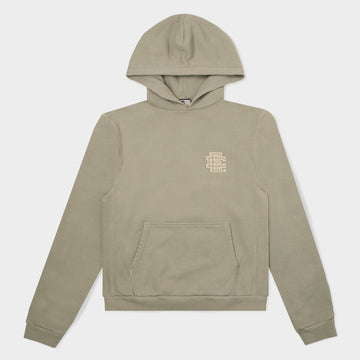The Emergence of Sustainable Fashion
In recent years, the fashion industry has undergone a significant transformation driven by a growing awareness of environmental and social impacts. Visit now https://ericemanuelclothing.shop/eric-emanuel-shorts/ This shift has led to the rise of sustainable and ethically produced fashion, marking a departure from traditional practices centered solely on trends and profits. Today, consumers, brands, and policymakers are increasingly prioritizing sustainability, ethics, and transparency in fashion production and consumption.
The concept of sustainable fashion encompasses a range of practices aimed at reducing the environmental footprint of clothing production. It includes using eco-friendly materials, implementing responsible manufacturing processes, and advocating for fair labor practices throughout the supply chain. One of the primary drivers behind the rise of sustainable fashion is the recognition of the industry’s substantial environmental impact.
Traditional fashion production is resource-intensive and generates significant waste and pollution. From water consumption and chemical use in textile production to carbon emissions from transportation and landfill waste from discarded garments, the environmental consequences are vast. In response, sustainable fashion seeks to minimize these impacts through various strategies such as using organic and recycled materials, adopting water-saving technologies, and promoting circularity by designing for durability and recyclability.
Ethical Considerations in Fashion
Alongside environmental concerns, ethical considerations play a crucial role in shaping the future of fashion. Issues such as sweatshop labor, unsafe working conditions, and exploitation of garment workers have long plagued the industry. Ethically produced fashion aims to uphold the rights and well-being of workers throughout the supply chain. This involves ensuring fair wages, safe working conditions, and supporting initiatives that empower workers, particularly in developing countries where much of the garment manufacturing occurs.
Consumer awareness and demand for transparency have been instrumental in driving brands to adopt ethical practices. Social media and digital platforms have amplified consumer voices, making it more difficult for brands to ignore ethical lapses. As a result, many consumers are now actively seeking out brands that demonstrate a commitment to ethical production, thereby exerting pressure on the industry to improve standards and accountability.
The Role of Technology and Innovation
Technological advancements have also played a pivotal role in advancing sustainable and ethical practices within the fashion industry. Innovations in textile recycling, such as converting plastic bottles into polyester or creating fabrics from agricultural waste, have opened up new possibilities for reducing waste and lowering environmental impact. Additionally, blockchain technology is being explored to enhance transparency in supply chains, allowing consumers to trace the journey of their garments from raw materials to finished products.
Moreover, digital platforms have facilitated the rise of direct-to-consumer models and made it easier for sustainable brands to reach a global audience. E-commerce has enabled niche sustainable brands to thrive, offering consumers more choices beyond conventional fashion retailers. This democratization of fashion has empowered consumers to make informed choices aligned with their values, further driving the demand for sustainability and ethics in fashion.
The Business Case for Sustainability
Beyond ethical and environmental considerations, there is a compelling business case for embracing sustainable practices in fashion. Studies have shown that consumers, especially millennials and Gen Z, are willing to pay a premium for products that align with their values. Brands that prioritize sustainability and ethics not only enhance their reputation but also attract a loyal customer base that values authenticity and social responsibility.
Furthermore, regulatory pressures and industry initiatives are pushing fashion companies towards greater sustainability. Governments are implementing regulations to curb waste and pollution, while industry organizations are setting standards for sustainable practices. This regulatory landscape is prompting businesses to innovate and adapt, fostering a more sustainable and responsible fashion industry.
Challenges and Future Outlook
Despite the progress made, challenges remain on the path towards a fully sustainable and ethical fashion industry. Scaling sustainable practices across the entire supply chain, from raw material sourcing to end-of-life disposal, poses logistical and economic challenges. Additionally, consumer education and awareness are crucial for driving widespread adoption of sustainable fashion practices.
Looking ahead, the future of fashion lies in continued collaboration among stakeholders—brands, consumers, policymakers, and innovators—to address these challenges and accelerate the transition towards sustainability. Advances in technology, coupled with evolving consumer preferences and regulatory frameworks, will play a pivotal role in shaping the industry’s trajectory.
Conclusion
The conscious consumerism and responsible business practices. By prioritizing environmental stewardship, ethical labor practices, and transparency, the fashion industry is not only reducing its ecological footprint but also promoting social justice and consumer empowerment. As awareness grows and demand for sustainability increases, the fashion industry is poised to embrace a future where style meets sustainability, creating a more equitable and environmentally conscious world.


